
Santo Domingo: The Heartbeat of the Caribbean
Santo Domingo, the capital of the Dominican Republic, is a city brimming with history, culture, and vibrant life. As the oldest continuously inhabited European settlement in the Americas, it offers a unique blend of old-world charm and modern dynamism. Wander through the Zona Colonial, a UNESCO World Heritage site, where cobblestone streets are lined with well-preserved Spanish colonial buildings, including the first cathedral of the New World. History enthusiasts will find a treasure trove of museums, fortresses, and plazas that tell the story of the city's rich past. Beyond its historical allure, Santo Domingo pulses with contemporary energy. The Malecón, a bustling seaside boulevard, is a favorite spot for both locals and visitors. Here, you can enjoy stunning ocean views, savor delicious Dominican cuisine, and experience the city's lively nightlife. The city's vibrant arts scene is showcased in its galleries, theaters, and public art installations, making it a cultural hub in the Caribbean. For those seeking a more laid-back experience, the city's lush parks and gardens provide a refreshing escape. The National Botanical Garden and Los Tres Ojos, a series of limestone caves and lakes, offer natural beauty and tranquility. With its warm climate, friendly people, and diverse attractions, Santo Domingo is a destination that promises to captivate and inspire every traveler.
Local tips in Santo Domingo
- Visit the Zona Colonial early in the morning to avoid crowds and enjoy a peaceful stroll through its historic streets.
- Try the local dish 'La Bandera'—a traditional meal consisting of rice, beans, and meat, often served with fried plantains.
- Take a sunset walk along the Malecón for breathtaking views of the Caribbean Sea.
- Learn some basic Spanish phrases; locals appreciate the effort and it will enhance your experience.
- Wear comfortable shoes as many of the city’s attractions involve walking on cobblestone streets.
- Stay hydrated and use sunscreen; the tropical climate can be intense, especially during the midday hours.
- Visit local markets like Mercado Modelo for unique souvenirs and a taste of local life.
Neighbourhoods in Santo Domingo
Santo Domingo: The Heartbeat of the Caribbean
Santo Domingo, the capital of the Dominican Republic, is a city brimming with history, culture, and vibrant life. As the oldest continuously inhabited European settlement in the Americas, it offers a unique blend of old-world charm and modern dynamism. Wander through the Zona Colonial, a UNESCO World Heritage site, where cobblestone streets are lined with well-preserved Spanish colonial buildings, including the first cathedral of the New World. History enthusiasts will find a treasure trove of museums, fortresses, and plazas that tell the story of the city's rich past. Beyond its historical allure, Santo Domingo pulses with contemporary energy. The Malecón, a bustling seaside boulevard, is a favorite spot for both locals and visitors. Here, you can enjoy stunning ocean views, savor delicious Dominican cuisine, and experience the city's lively nightlife. The city's vibrant arts scene is showcased in its galleries, theaters, and public art installations, making it a cultural hub in the Caribbean. For those seeking a more laid-back experience, the city's lush parks and gardens provide a refreshing escape. The National Botanical Garden and Los Tres Ojos, a series of limestone caves and lakes, offer natural beauty and tranquility. With its warm climate, friendly people, and diverse attractions, Santo Domingo is a destination that promises to captivate and inspire every traveler.
When is the best time to go to Santo Domingo?
Iconic landmarks you can’t miss
Mirador Del Sur Joaquín Balaguer Park
Experience the natural beauty and recreational charm of Mirador Del Sur Joaquín Balaguer Park in Santo Domingo, a perfect getaway for nature lovers and sports enthusiasts.
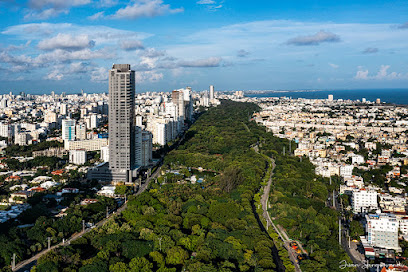
Columbus Park
Experience the rich history and vibrant culture at Columbus Park, a historical landmark in the heart of Santo Domingo's Zona Colonial.
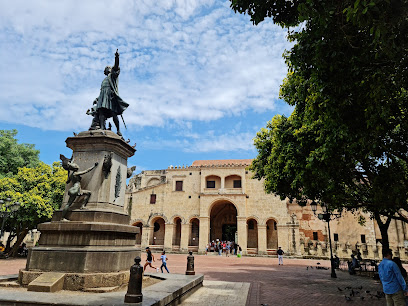
Plaza de la Hispanidad or Spain
Explore the historical charm and lush landscapes of Plaza de la Hispanidad in Santo Domingo, a must-visit park in the heart of the Colonial Zone.
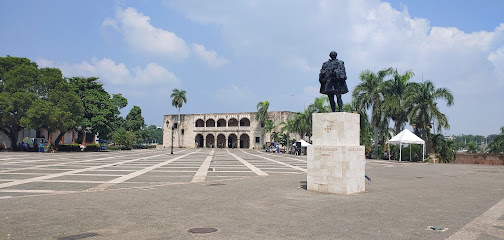
Independence Park
Discover the tranquility and cultural richness of Independence Park in Santo Domingo, a perfect escape for tourists seeking relaxation and history.
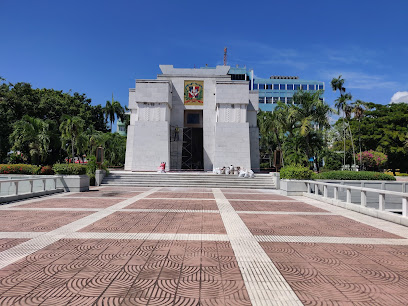
The Three Eyes National Park
Explore the breathtaking Three Eyes National Park featuring stunning lagoons, lush vegetation, and fascinating caves in Santo Domingo Este.
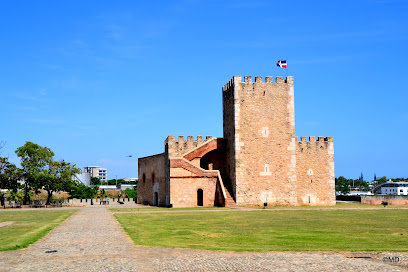
Santo Domingo Malecon
Discover the beauty and vibrancy of Santo Domingo Malecon, a stunning waterfront promenade that invites you to explore and relax by the Caribbean Sea.
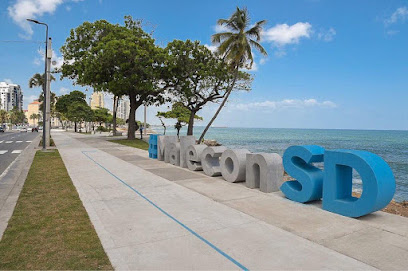
Faro a Colón, Santo Domingo Este
Discover the historical significance of Faro a Colón, a remarkable lighthouse and museum dedicated to Christopher Columbus in Santo Domingo Este.
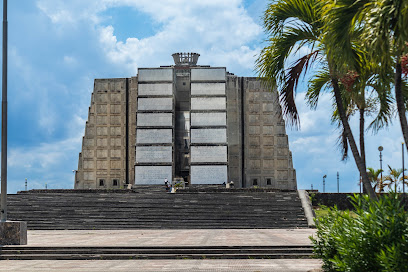
Mercado Modelo
Explore the lively Mercado Modelo, a cultural and culinary treasure trove in Santo Domingo, where local artisans and delicious Dominican flavors await.
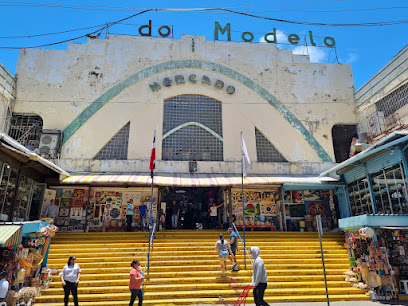
Catedral Primada de América de Santo Domingo
Discover the architectural splendor of Catedral Primada de América, the first cathedral in the Americas, in the vibrant Colonial Zone of Santo Domingo.
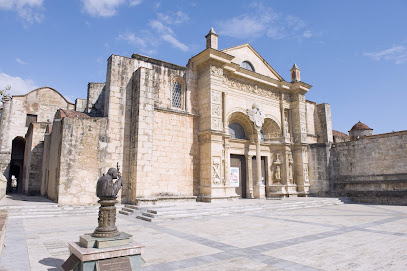
Fortaleza Ozama
Explore the historic Fortaleza Ozama in Santo Domingo, a stunning fortress that showcases the rich heritage of the Dominican Republic.
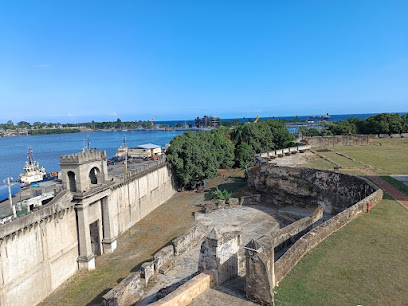
Alcázar de Colón
Explore the Alcázar de Colón in Santo Domingo, a captivating museum that unveils the rich history of the Americas through stunning artifacts and colonial architecture.
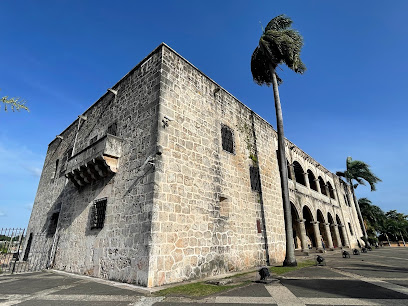
Plaza María de Toledo
Explore the vibrant Plaza María de Toledo, a historical site in Santo Domingo's Zona Colonial, rich with culture, architecture, and local flavor.
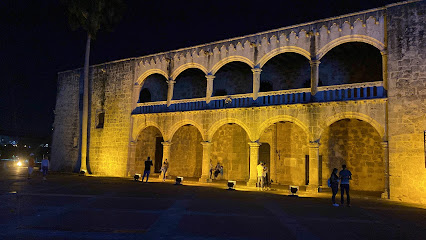
Kahkow Experience
Discover the rich heritage of Dominican chocolate at Kahkow Experience in Santo Domingo, where taste meets tradition in a sweet adventure.
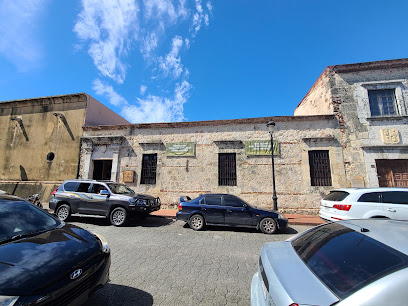
Nuestra Señora de la Encarnación
Discover the architectural marvel of Nuestra Señora de la Encarnación in Santo Domingo's historic Zona Colonial, a must-visit landmark for cultural enthusiasts.
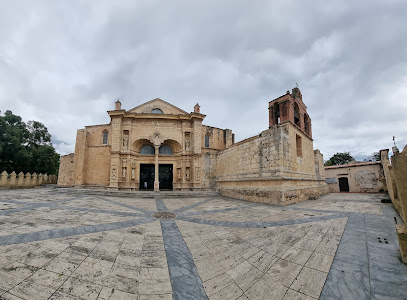
Museum of the Royal Houses
Explore the Museum of the Royal Houses in Santo Domingo, a historical landmark showcasing the rich cultural heritage of the Dominican Republic.
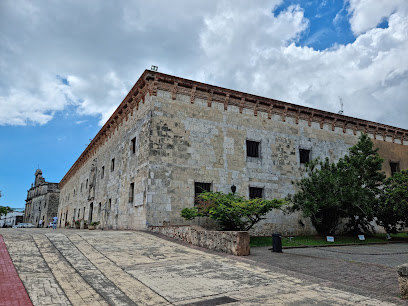
Unmissable attractions to see
Columbus Park
Explore the heart of Santo Domingo at Columbus Park, a historical landmark filled with culture, charm, and stunning views.
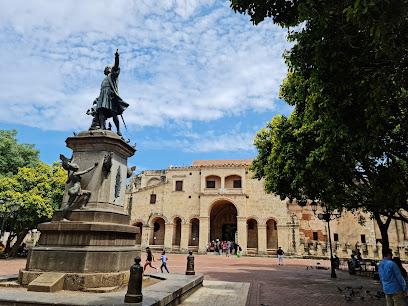
National Botanical Garden Dr. Rafael María Moscoso
Discover the lush beauty of the National Botanical Garden Dr. Rafael María Moscoso in Santo Domingo, a haven for nature lovers in the heart of the city.
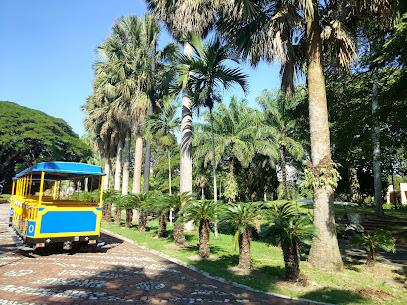
Plaza de la Hispanidad or Spain
Explore the historical Plaza de la Hispanidad in Santo Domingo, a vibrant park blending culture, history, and local charm in the heart of the Zona Colonial.
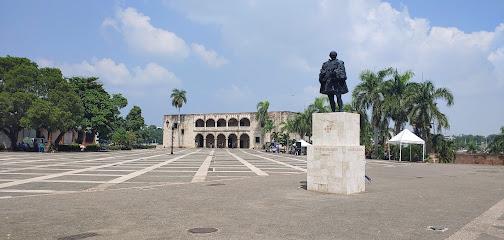
Independence Park
Independence Park: A lush historical oasis in Santo Domingo, blending nature, culture, and the spirit of freedom.
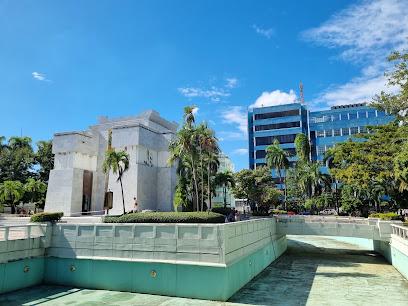
The Three Eyes National Park
Discover the breathtaking beauty of The Three Eyes National Park with its stunning caves, azure lagoons, and rich biodiversity in Santo Domingo Este.
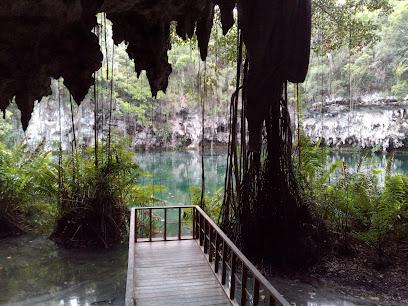
Parque Iberoamérica
Discover the serene beauty of Parque Iberoamérica, a lush urban park in Santo Domingo perfect for relaxation, picnics, and cultural events.
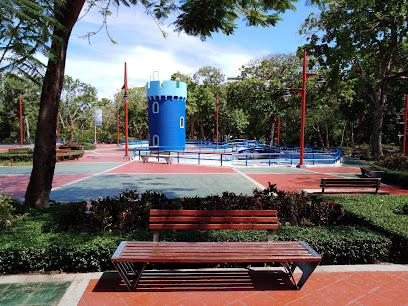
Teatro Nacional Eduardo Brito
Experience the vibrant performing arts scene at Teatro Nacional Eduardo Brito, a cultural treasure in Santo Domingo, showcasing the best of Dominican artistry.
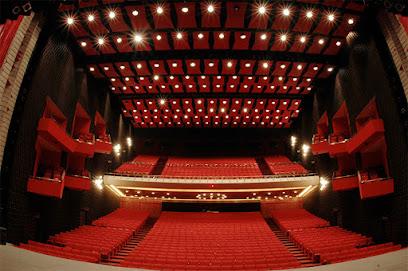
Plaza Güibia
Experience the vibrant atmosphere of Plaza Güibia, Santo Domingo's premier spot for relaxation, culture, and breathtaking Caribbean views.
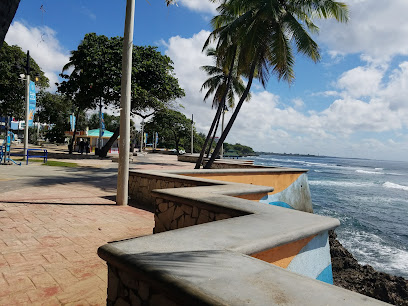
Faro a Colón, Santo Domingo Este
Explore the majestic Faro a Colón, a historical monument and museum dedicated to Columbus in Santo Domingo Este, offering stunning views and rich culture.
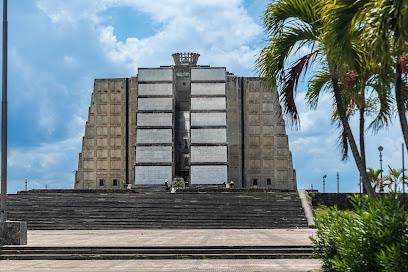
Malecón de la Av. España
Discover stunning ocean views, vibrant culture, and recreational activities at Malecón de la Av. España in Santo Domingo Este.
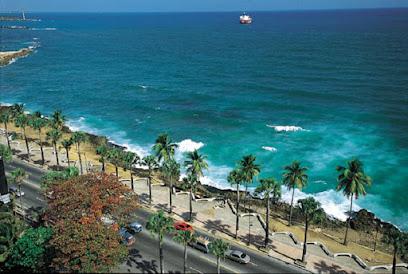
Parque Eugenio María de Hostos
Explore the beauty of Parque Eugenio María de Hostos, a vibrant urban park in Santo Domingo filled with lush greenery, cultural events, and family-friendly activities.
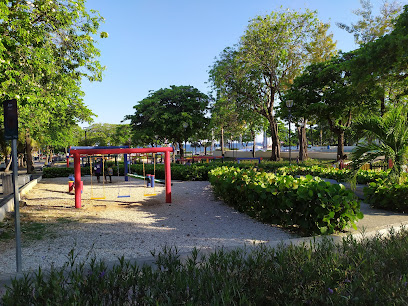
Duarte Park
Discover Duarte Park, a tranquil green space in Santo Domingo's Zona Colonial, offering a blend of nature, culture, and history.
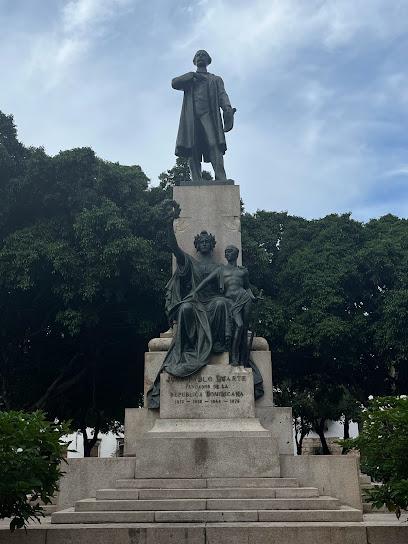
Mercado Modelo
Discover the vibrant Mercado Modelo in Santo Domingo - a bustling market filled with local crafts, fresh produce, and traditional Dominican culture.
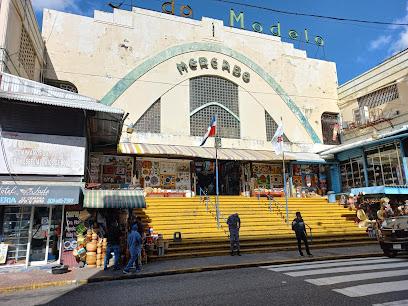
Catedral Primera de las Américas de Santo Domingo
Explore the breathtaking Catedral Primera de las Américas, the oldest cathedral in the Americas, located in the historic Zona Colonial of Santo Domingo.
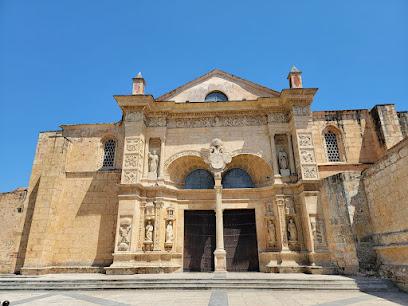
Fortaleza Ozama
Explore Fortaleza Ozama, the oldest fortress in the Americas, a testament to the Dominican Republic's historical and architectural heritage.
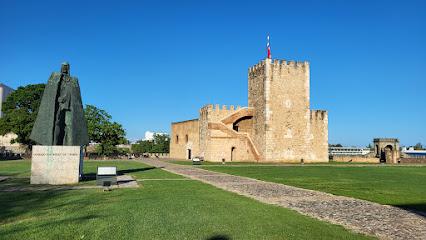
Essential places to dine
Adrian Tropical
Discover authentic Dominican flavors at Adrian Tropical – where every dish is a celebration of island heritage.
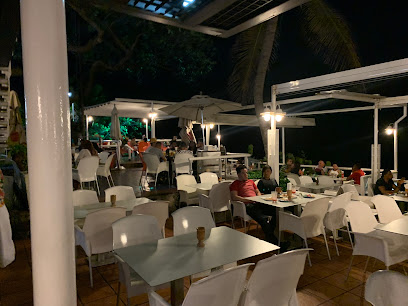
Villar Hermanos
Discover authentic Dominican flavors at Villar Hermanos in Santo Domingo—where every dish tells a story.
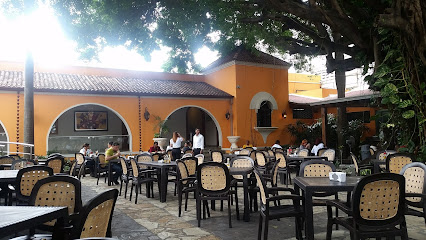
Jalao
Discover authentic Dominican flavors at Jalao in Santo Domingo's vibrant Zona Colonial.
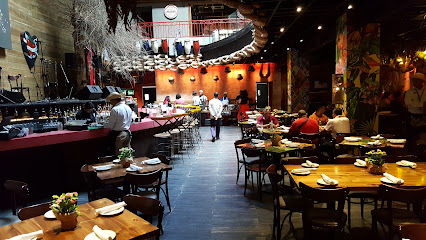
Laurel
Experience the exquisite flavors of Latin America at Laurel, Santo Domingo's premier restaurant offering an elegant dining atmosphere and exceptional service.
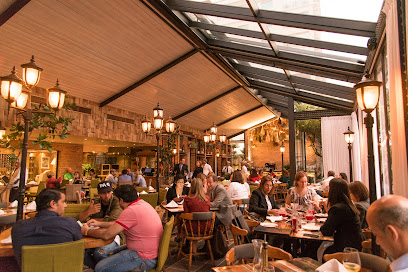
D' Luis Parrillada
Experience authentic Dominican cuisine at D' Luis Parrillada – where flavor meets tradition in the heart of Santo Domingo.
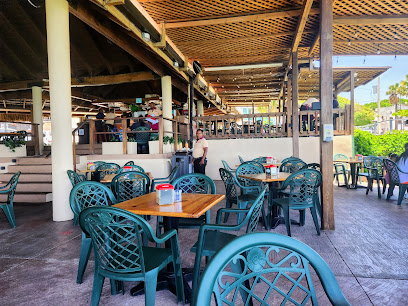
La Dolcerie
Discover La Dolcerie in Santo Domingo - where culinary artistry meets vibrant ambiance for an unforgettable dining experience.
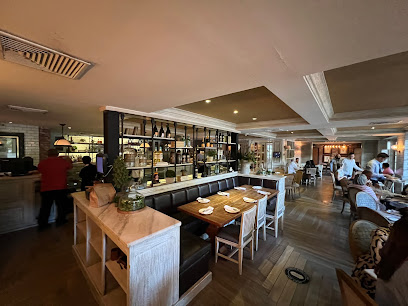
Pat'e Palo European Brasserie
Experience culinary excellence at Pat'e Palo European Brasserie in Santo Domingo's historic Zona Colonial—where modern French cuisine meets vibrant culture.
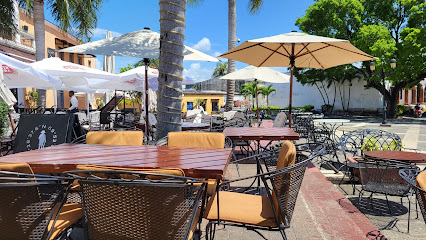
El Mesón de la Cava
Experience exquisite dining at El Mesón de la Cava in Santo Domingo – where culinary artistry meets breathtaking ambiance.
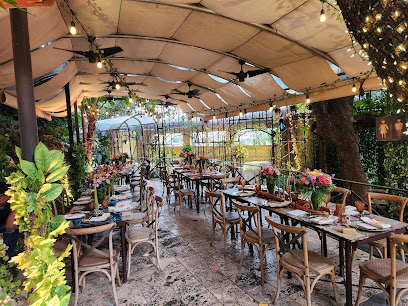
El Conuco
Experience authentic Dominican cuisine at El Conuco in Santo Domingo—where vibrant flavors meet cultural richness.
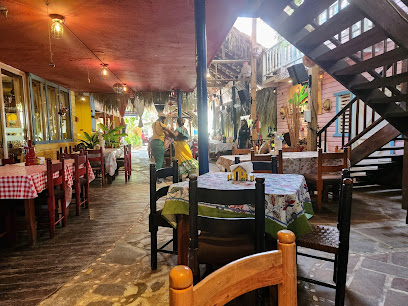
Buche Perico
Discover authentic Dominican cuisine at Buche Perico in Santo Domingo's historic Zona Colonial, where tradition meets culinary excellence.
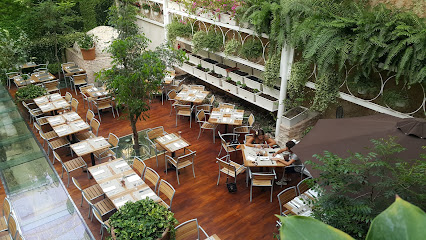
Casa Vera
Discover Casa Vera in Santo Domingo – where local flavors meet modern cuisine in a vibrant setting.
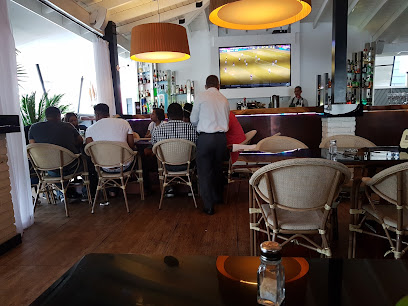
Tony Roma's
Savor the best of American cuisine at Tony Roma's in Santo Domingo—home of delicious barbecue ribs, fresh seafood, and grilled steaks.
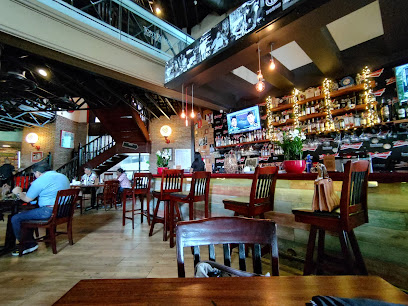
Hard Rock Cafe Santo Domingo
Discover the ultimate blend of American cuisine and rock culture at Hard Rock Cafe Santo Domingo in the heart of Blue Mall.
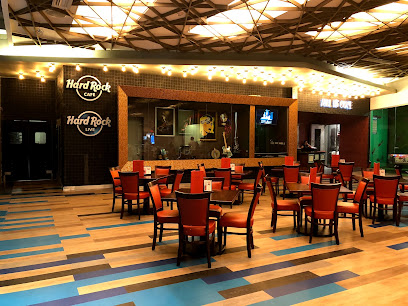
Restaurant Vizcaya
Experience the rich flavors of Spanish cuisine at Restaurant Vizcaya in Santo Domingo – where every meal is a celebration.
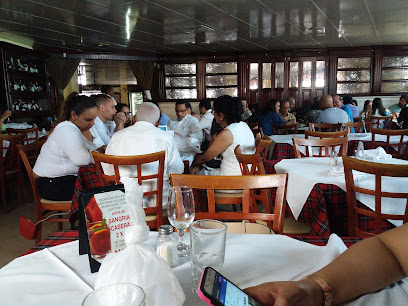
Mesón Iberia
Experience authentic Spanish cuisine at Mesón Iberia in Santo Domingo - where vibrant flavors meet warm hospitality.
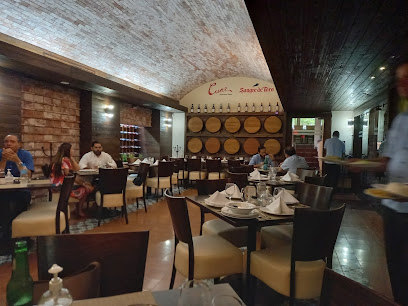
Markets, malls and hidden boutiques
Ágora Mall
Experience shopping, dining, and entertainment like never before at Santo Domingo's Ágora Mall, where culture meets modernity.
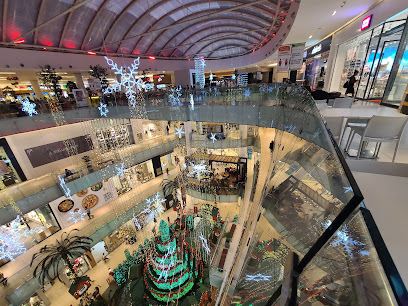
Sambil Santo Domingo
Sambil Santo Domingo: A vibrant shopping mall offering diverse stores, dining, and entertainment in the heart of the Dominican Republic.
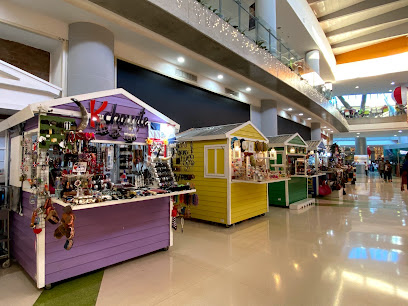
BlueMall Santo Domingo
Discover the elegance of shopping and dining at BlueMall Santo Domingo, where luxury meets local charm in the heart of the city.
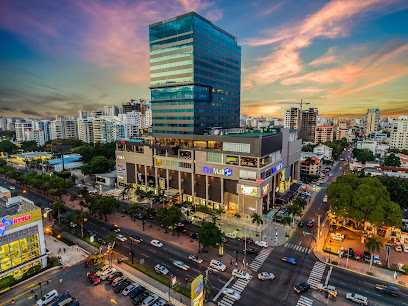
Mercado Modelo
Explore Mercado Modelo: A cultural and shopping gem in Santo Domingo boasting local crafts, delicious food, and vibrant atmosphere.
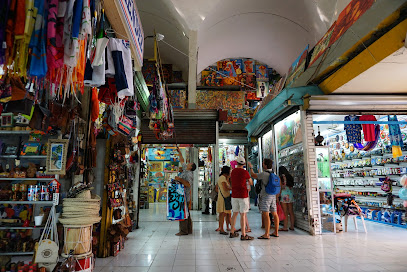
Silversun Gallery
Explore Silversun Gallery in Santo Domingo for unique fashion accessories, local artistry, and a vibrant shopping experience in the heart of the city.
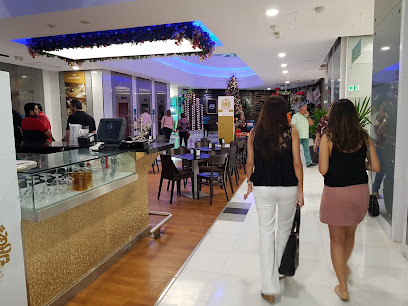
Tienda Aventura
Discover vibrant shopping at Tienda Aventura, Santo Domingo’s top department store, where local culture meets diverse product offerings.
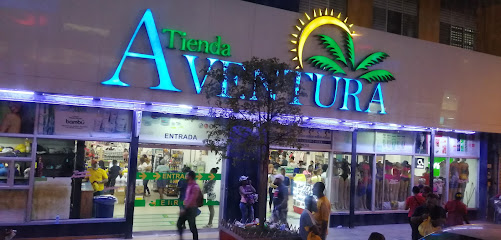
China town
Explore the vibrant Chinatown in Santo Domingo, a shopping paradise filled with authentic Chinese cuisine, culture and unique shopping experiences.
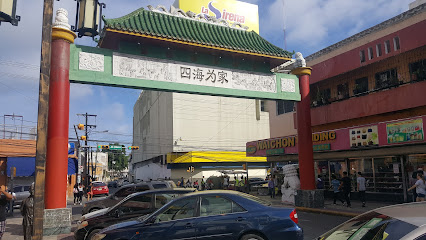
Bags Boutique
Explore stylish bags and unique accessories at Bags Boutique in Santo Domingo, a top shopping destination for tourists seeking quality and craftsmanship.

La Leyenda del Cigarro Cigar Shop and Factory
Discover the art of cigar making at La Leyenda del Cigarro, a premier cigar shop and factory in Santo Domingo's historic Zona Colonial.
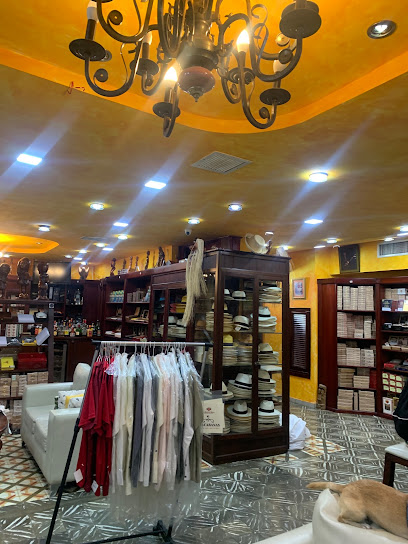
Blue Country Factory Store
Explore a world of fashion at Blue Country Factory Store in Santo Domingo, where style meets affordability for every traveler.
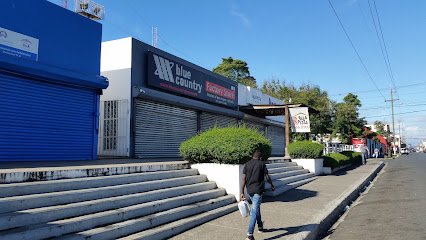
MiPrenda RD
Explore MiPrenda RD in Santo Domingo for unique beach clothing, fashion accessories, and memorable souvenirs from the Dominican Republic.
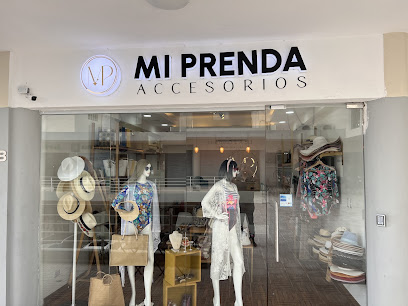
El Mercado Colonial
Discover the vibrant spirit of Santo Domingo at El Mercado Colonial, where unique Dominican souvenirs await every traveler.
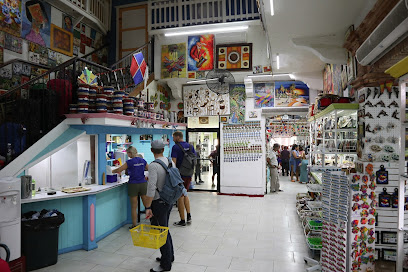
Cartier Dominican Republic
Experience luxury shopping at Cartier in Santo Domingo - your destination for exquisite jewelry, diamonds, and fashion accessories.
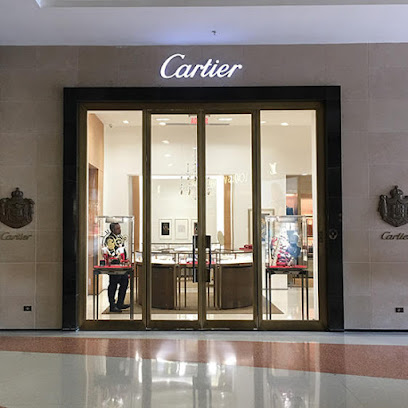
Ricordi Souvenirs
Explore the vibrant culture of the Dominican Republic with unique souvenirs from Ricordi Souvenirs in Santo Domingo.

Unique Store
Explore Unique Store in Santo Domingo for a vibrant collection of clothing that blends local culture with contemporary fashion trends.

Essential bars & hidden hideouts
Onno's Zona Colonial Bar & Restaurant
Experience the vibrant flavors and nightlife of Santo Domingo at Onno's Zona Colonial, where Dominican tradition meets modern dining.
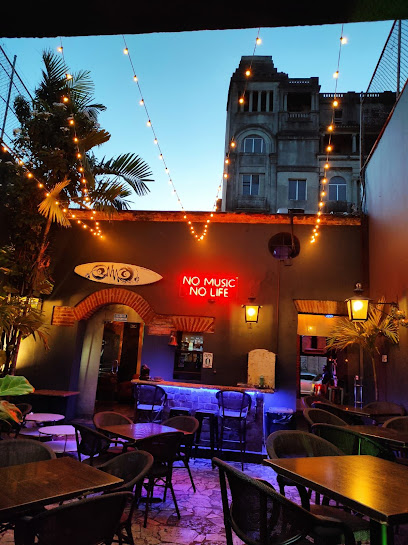
Parada 77
Discover the vibrant nightlife of Santo Domingo at Parada 77, where great drinks meet a lively atmosphere in the heart of Zona Colonial.
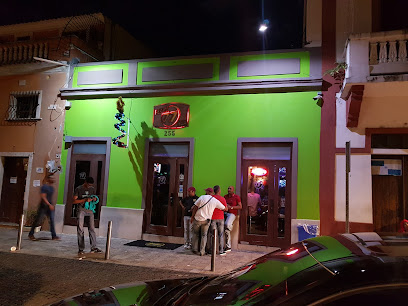
La Posta Bar
Discover the vibrant nightlife at La Posta Bar in Santo Domingo, where expertly crafted cocktails and delicious tapas await in a lively atmosphere.
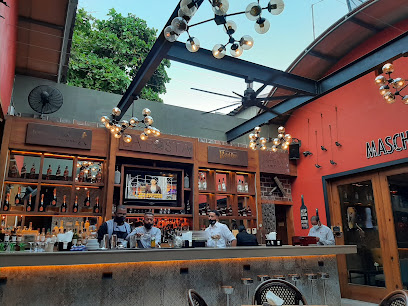
Shots Bar
Discover the vibrant nightlife at Shots Bar in Santo Domingo, where live music and great drinks create an unforgettable experience.
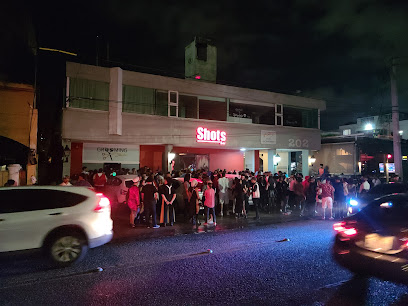
Sabina Bar Zona Colonial
Discover the vibrant nightlife at Sabina Bar in Santo Domingo's historic Zona Colonial, where culture meets exceptional cocktails and live music.
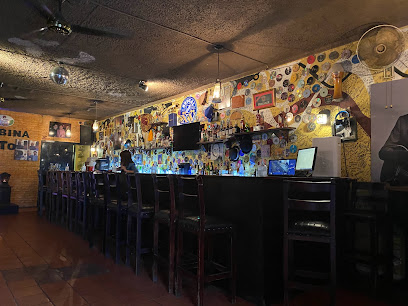
Local 3
Discover Local 3, a lively bar in Santo Domingo, renowned for its creative cocktails, vibrant atmosphere, and unforgettable nightlife experience.
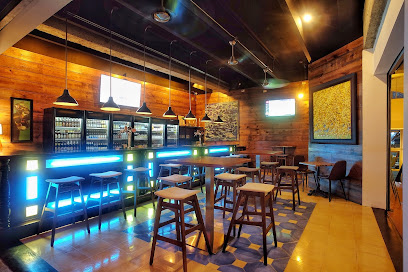
Dock Lounge Terrace
Dock Lounge Terrace: A stylish bar in Santo Domingo offering stunning views, refreshing cocktails, and a vibrant atmosphere perfect for a night out.
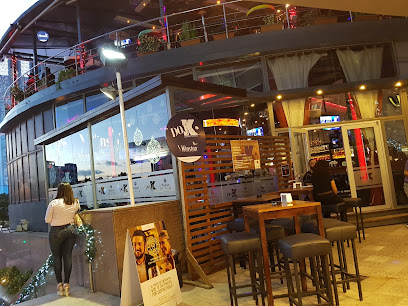
Caciba Bar
Experience the vibrant nightlife at Caciba Bar in Santo Domingo, where exquisite cocktails meet lively music in a historic setting.
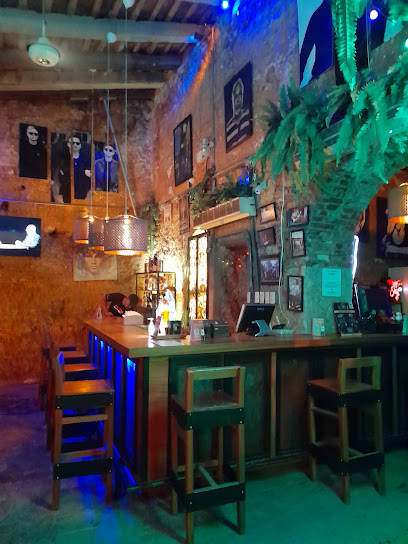
Veo Veo / Local Colonial
Discover the vibrant nightlife at Veo Veo in Santo Domingo, where art, music, and exquisite cocktails create an unforgettable experience.
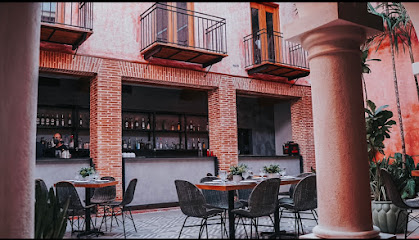
Esedeku Bar & Terraza
Discover the vibrant nightlife of Santo Domingo at Esedeku Bar & Terraza, where cocktails and camaraderie blend seamlessly.
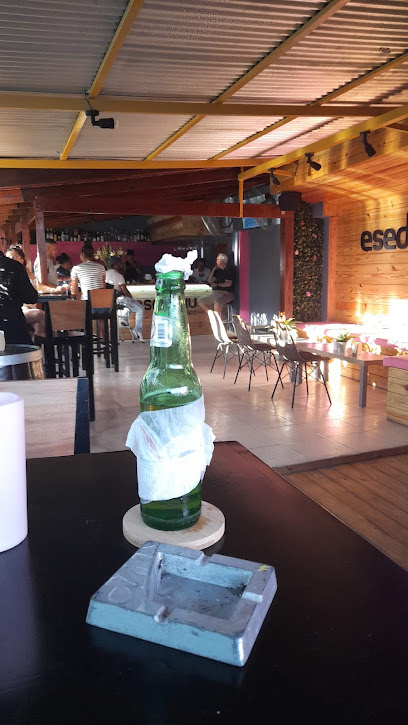
Fenix Bar. Italian Food & Fun
Experience the vibrant fusion of Italian cuisine and nightlife at Fenix Bar in Santo Domingo's historic Zona Colonial.
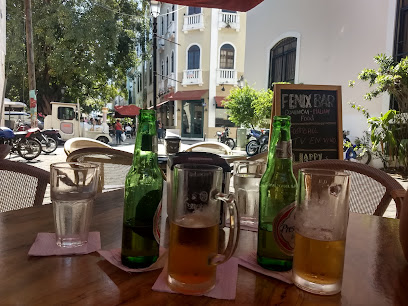
Rox Bar
Discover the vibrant Rox Bar in Santo Domingo's Zona Colonial, where creative cocktails and electrifying dance beats create an unforgettable nightlife experience.
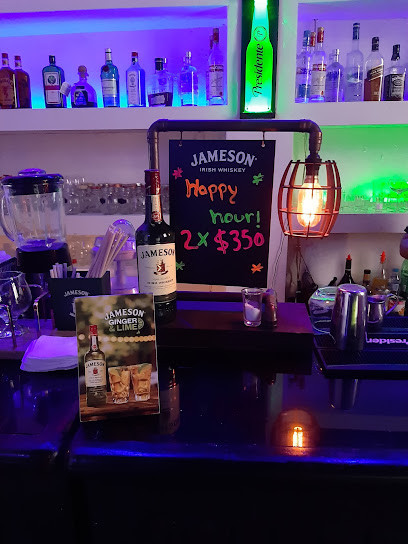
Kviar Lounge & Casino Santo Domingo
Discover a vibrant nightlife at Kviar Lounge & Casino in Santo Domingo, where elegance meets excitement with live music, gaming, and fine dining.
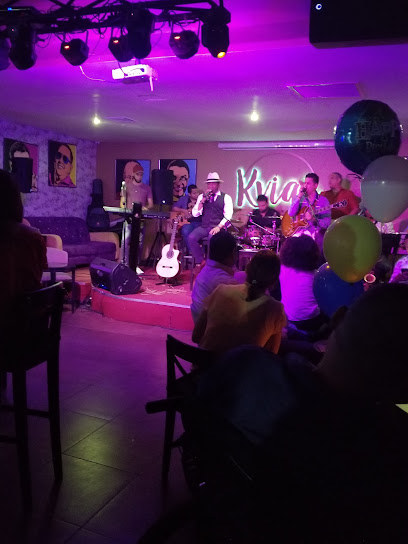
RUMBA DELUXE BAR AND LOUNGE SANTO DOMINGO
Experience the vibrant nightlife and gourmet delights at Rumba Deluxe Bar and Lounge, Santo Domingo's premier musical venue and grill.
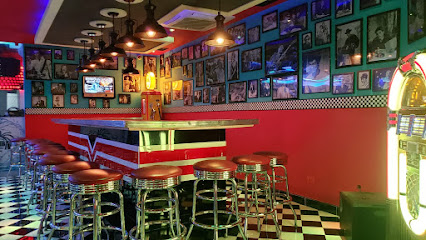
Local Phrases
-
- HelloHola
[oh-lah] - GoodbyeAdiós
[ah-dee-ohs] - YesSí
[see] - NoNo
[noh] - Please/You're welcomePor favor/De nada
[por fah-vor/deh nah-dah] - Thank youGracias
[grah-see-ahs] - Excuse me/SorryDisculpe/Perdón
[dees-kool-peh/pehr-dohn] - How are you?¿Cómo estás?
[koh-moh ehs-tahs] - Fine. And you?Bien. ¿Y tú?
[bee-ehn. ee too] - Do you speak English?¿Hablas inglés?
[ah-blahs een-glehs] - I don't understandNo entiendo
[noh ehn-tyehn-doh]
- HelloHola
-
- I'd like to see the menu, pleaseMe gustaría ver el menú, por favor
[meh goo-stah-ree-ah vehr ehl meh-noo, por fah-vor] - I don't eat meatNo como carne
[noh koh-moh kahr-neh] - Cheers!¡Salud!
[sah-lood] - I would like to pay, pleaseMe gustaría pagar, por favor
[meh goo-stah-ree-ah pah-gahr, por fah-vor]
- I'd like to see the menu, pleaseMe gustaría ver el menú, por favor
-
- Help!¡Ayuda!
[ah-yoo-dah] - Go away!¡Vete!
[veh-teh] - Call the Police!¡Llama a la Policía!
[yah-mah ah lah poh-lee-see-ah] - Call a doctor!¡Llama a un médico!
[yah-mah ah oon meh-dee-koh] - I'm lostEstoy perdido
[eh-stoy pehr-dee-doh] - I'm illEstoy enfermo
[eh-stoy ehn-fehr-moh]
- Help!¡Ayuda!
-
- I'd like to buy...Me gustaría comprar...
[meh goo-stah-ree-ah kohm-prahr] - I'm just lookingSolo estoy mirando
[soh-loh eh-stoy mee-rahn-doh] - How much is it?¿Cuánto cuesta?
[kwan-toh kweh-stah] - That's too expensiveEso es demasiado caro
[eh-soh es deh-mah-see-ah-doh kah-roh] - Can you lower the price?¿Puede bajar el precio?
[pweh-deh bah-hahr ehl pree-syoh]
- I'd like to buy...Me gustaría comprar...
-
- What time is it?¿Qué hora es?
[keh oh-rah es] - It's one o'clockEs la una
[ehs lah oo-nah] - Half past (10)Media (10)
[meh-dee-ah (diez)] - MorningMañana
[mah-nyah-nah] - AfternoonTarde
[tahr-deh] - EveningNoche
[noh-cheh] - YesterdayAyer
[ah-yehr] - TodayHoy
[oy] - TomorrowMañana
[mah-nyah-nah] - 1Uno
[oo-noh] - 2Dos
[dohs] - 3Tres
[trehs] - 4Cuatro
[kwah-troh] - 5Cinco
[seen-koh] - 6Seis
[seys] - 7Siete
[syeh-teh] - 8Ocho
[oh-choh] - 9Nueve
[nweh-veh] - 10Diez
[dyehs]
- What time is it?¿Qué hora es?
-
- Where's a/the...?¿Dónde está...?
[dohn-deh ehs-tah] - What's the address?¿Cuál es la dirección?
[kwal ehs lah dee-rehk-syohn] - Can you show me (on the map)?¿Puede mostrarme (en el mapa)?
[pweh-deh mohs-trar-meh (ehn ehl mah-pah)] - When's the next (bus)?¿Cuándo es el próximo (autobús)?
[kwan-doh ehs ehl prohk-see-moh (ow-toh-boos)] - A ticket (to ....)Un boleto (a ...)
[oon boh-leh-toh (ah)]
- Where's a/the...?¿Dónde está...?
History of Santo Domingo
-
Santo Domingo was founded in 1496 by Bartholomew Columbus, the brother of Christopher Columbus. It is the oldest continuously inhabited European settlement in the Americas and served as the capital of the Spanish colonial empire in the New World.
-
The Colonial Zone of Santo Domingo, a UNESCO World Heritage Site, is home to the first cathedral, hospital, customs house, and university in the Americas. This area, also known as 'Ciudad Colonial,' is a treasure trove of historical landmarks, including the Catedral Primada de América and Alcázar de Colón.
-
In 1586, the city was attacked by English privateer Sir Francis Drake, who captured and held the city for ransom. This event, known as the Battle of Santo Domingo, marked a significant moment in the city's colonial history and showcased the strategic importance of Santo Domingo.
-
In the mid-17th century, Santo Domingo underwent significant reconstruction. The city's fortifications were strengthened to protect against future attacks, and new buildings were constructed, reflecting the Baroque architectural style that was popular in Europe at the time.
-
The Dominican Republic gained independence from Haiti in 1844, and Santo Domingo became the capital of the newly independent nation. The city experienced significant changes during the dictatorship of Rafael Trujillo (1930-1961), who renamed the city Ciudad Trujillo and initiated numerous infrastructure projects.
-
Today, Santo Domingo is a bustling metropolis that blends historical charm with modern amenities. The city is an economic and cultural hub, featuring diverse neighborhoods, vibrant nightlife, and a rich cultural scene that reflects its storied past and dynamic present.
Santo Domingo Essentials
-
Santo Domingo is accessible via Las Américas International Airport (SDQ), located approximately 30 minutes from the city center. Numerous airlines offer direct and connecting flights from major cities around the world. Once you arrive at the airport, you can take a taxi, shuttle service, or rent a car to get to your accommodation in Santo Domingo.
-
In Santo Domingo, transportation options include taxis, public buses (guaguas), and the Metro. Taxis are widely available and can be hailed on the street or booked via apps like Uber. Public buses are an affordable way to get around, though they can be crowded and less reliable. The Santo Domingo Metro is a convenient and modern option for traveling within the city. Car rentals are also available for those who prefer to drive.
-
The official currency of the Dominican Republic is the Dominican Peso (DOP). Major credit cards are accepted in most hotels, restaurants, and shops. However, it's advisable to carry some cash for smaller establishments and local markets. ATMs are widely available throughout the city, and many offer the option to withdraw cash in pesos or US dollars. Currency exchange services are also available at the airport and in various locations around Santo Domingo.
-
Santo Domingo is generally safe for tourists, but it's important to remain vigilant. Avoid walking alone at night, especially in less crowded areas. Be cautious in neighborhoods like Cristo Rey and Capotillo, which have higher crime rates. Keep valuables secure and be aware of your surroundings, particularly in crowded places. Stick to well-lit and populated areas to minimize risks.
-
In case of an emergency, dial 911 for police, fire, or medical assistance. Santo Domingo has several hospitals and clinics, including the Centro Médico Dominicano and Hospital General de la Plaza de la Salud, which offer emergency services. It’s recommended to have travel insurance that covers medical emergencies. Pharmacies are also available for minor health issues and over-the-counter medications.
-
Fashion: Do dress comfortably but modestly. Avoid overly revealing clothing, especially when visiting religious sites. Religion: Do respect local customs and traditions. Dress appropriately when visiting churches and other religious sites. Public Transport: Do be courteous and give up your seat for elderly passengers. Don't eat or drink on public buses or the Metro. Greetings: Do greet people with a handshake or a friendly nod. A kiss on the cheek is common among close acquaintances. Eating & Drinking: Do try local dishes and accept food offerings graciously. Don't refuse hospitality, as it is considered impolite.
-
To experience Santo Domingo like a local, visit the Mercado Modelo for local crafts and produce. Enjoy a leisurely stroll along the Malecón, a waterfront promenade offering beautiful views and local eateries. Engage with locals, who are often friendly and willing to share stories about the city's history and culture. Don't miss exploring the Colonial Zone, a UNESCO World Heritage Site with historic buildings, museums, and vibrant street life. For a unique experience, take a ride on the Teleférico, a cable car offering panoramic views of the city.
Trending Landmark in Santo Domingo
-
Mirador Del Sur Joaquín Balaguer Park
-
Columbus Park
-
Plaza de la Hispanidad or Spain
-
Independence Park
-
The Three Eyes National Park
-
Santo Domingo Malecon
-
Faro a Colón, Santo Domingo Este
-
Mercado Modelo
-
Catedral Primada de América de Santo Domingo
-
Fortaleza Ozama
-
Alcázar de Colón
-
Plaza María de Toledo
-
Kahkow Experience
-
Nuestra Señora de la Encarnación
-
Museum of the Royal Houses
Nearby Cities to Santo Domingo
-
Things To Do in La Romana
-
Things To Do in Samana
-
Things To Do in Jarabacoa
-
Things To Do in Bayahibe
-
Things To Do in Punta Cana
-
Things To Do in Puerto Plata
-
Things To Do in Hinche
-
Things To Do in Petionville
-
Things To Do in Port-au-Prince
-
Things To Do in Jacmel
-
Things To Do in Cap-Haïtien
-
Things To Do in Rincon
-
Things To Do in Aguadilla
-
Things To Do in Cabo Rojo
-
Things To Do in Saint-Marc


















